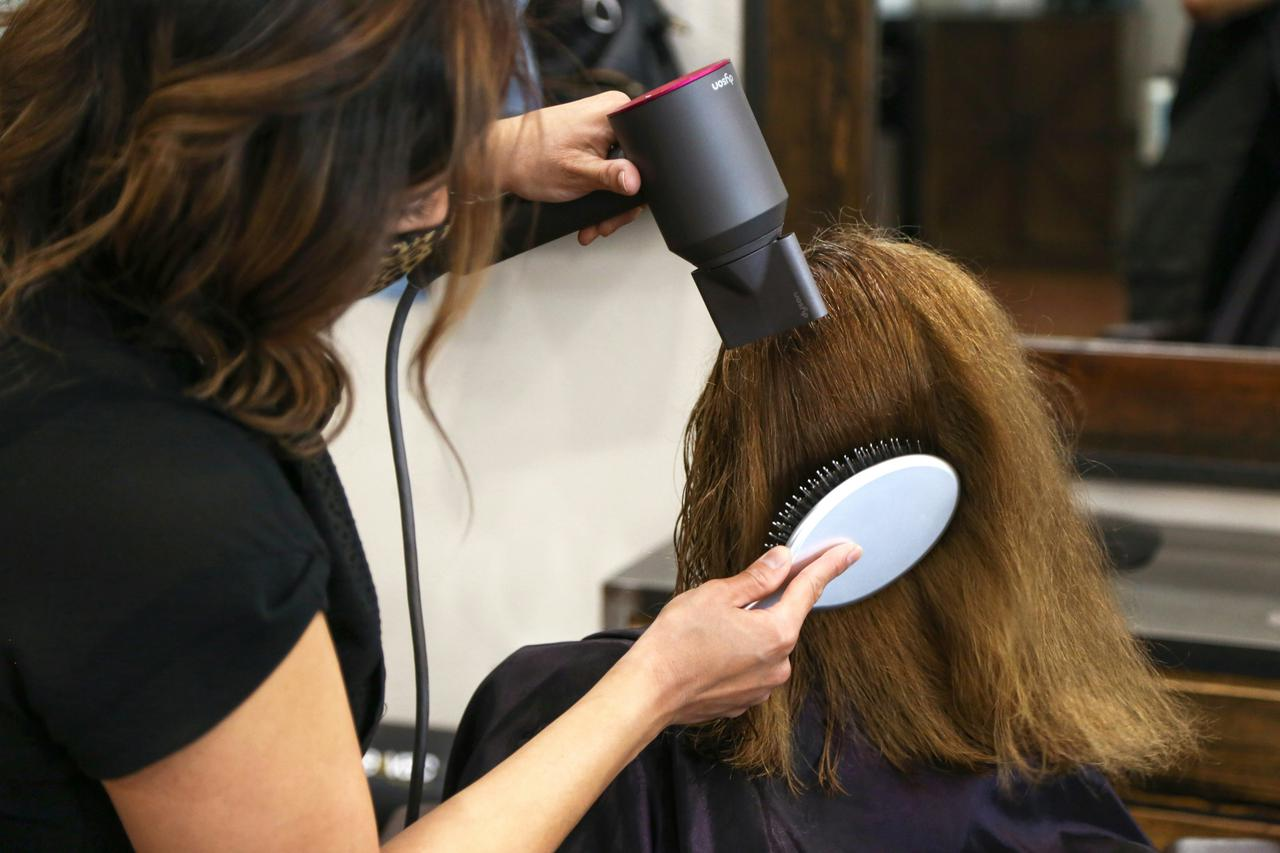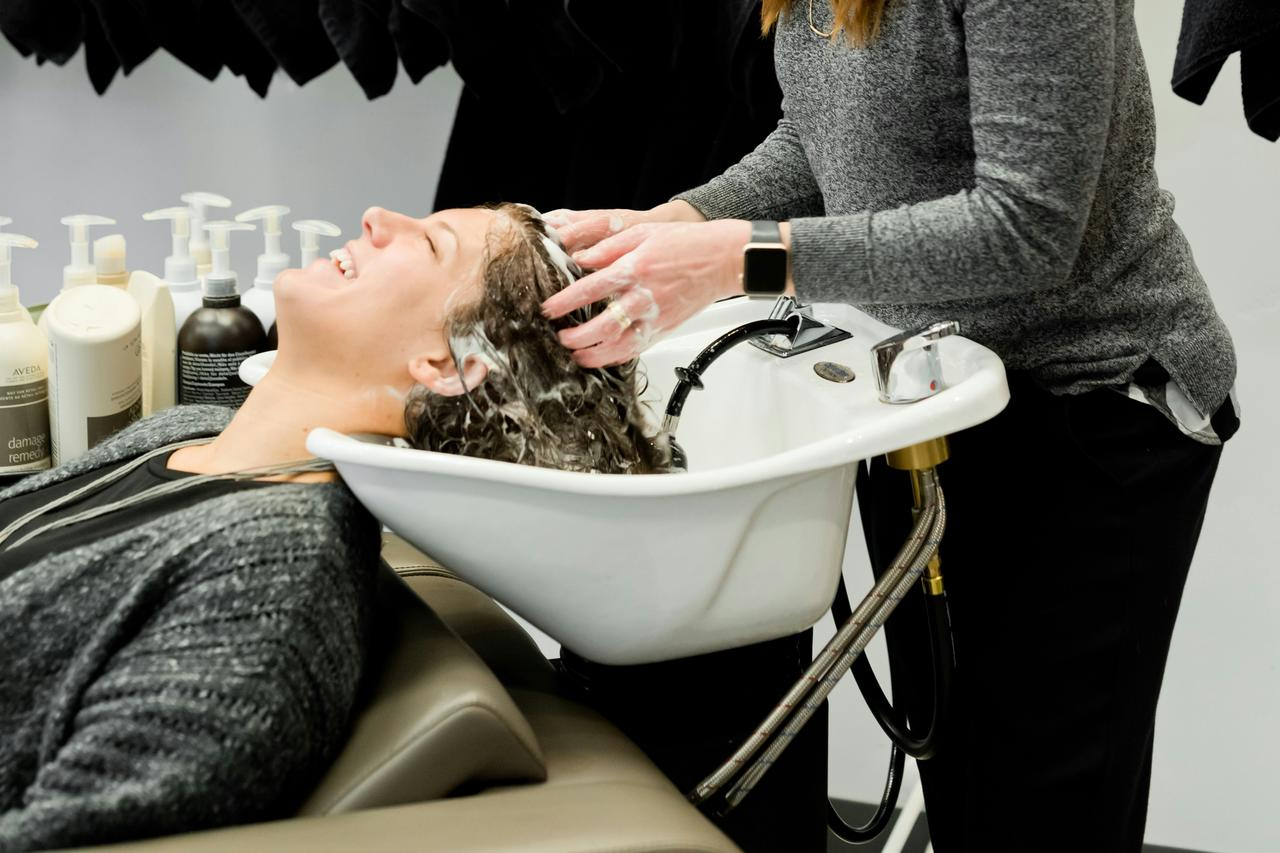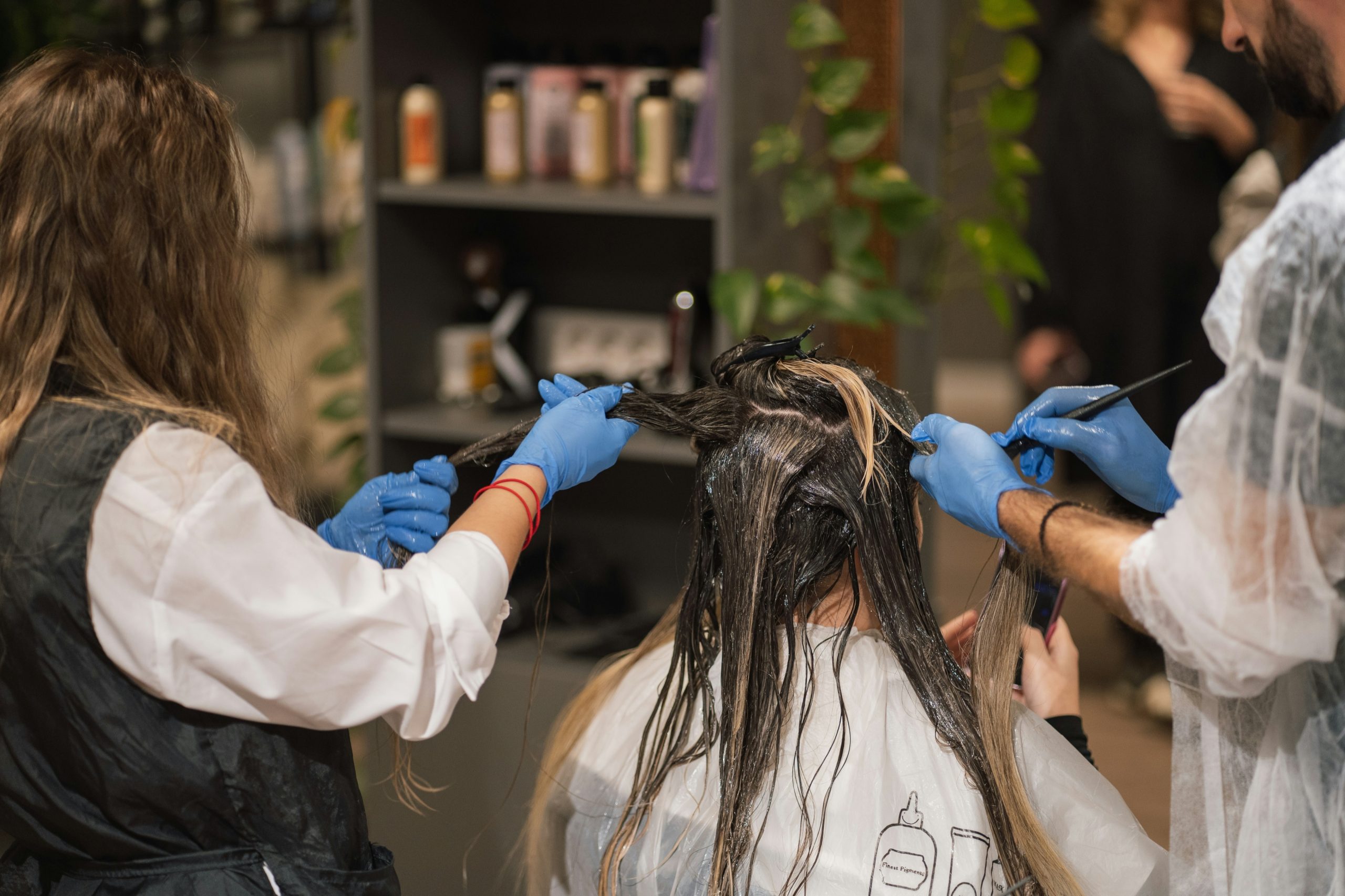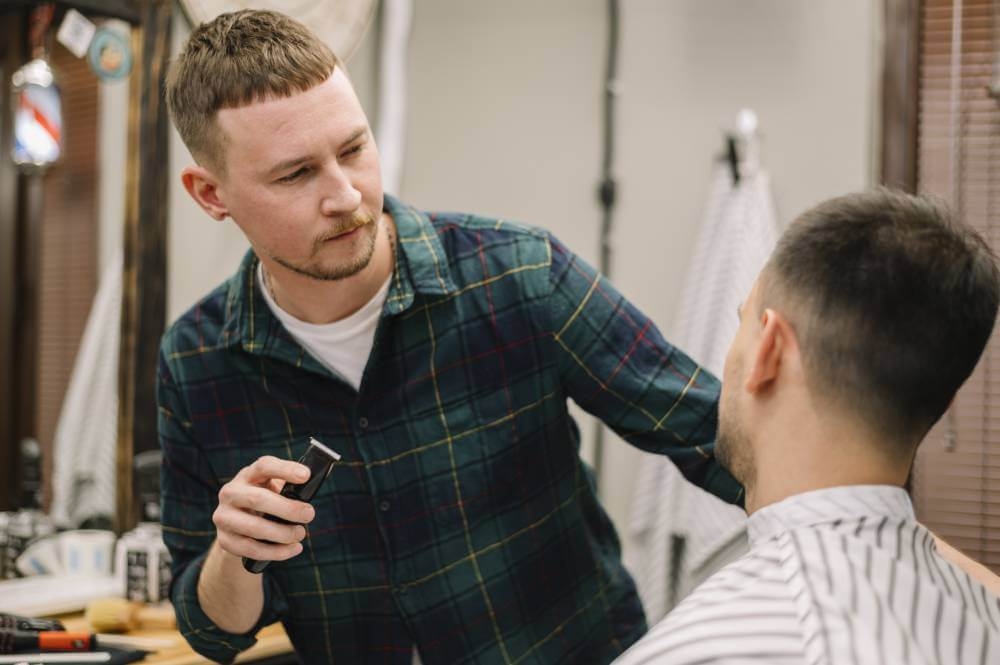Dreaming of losing hair is both weird and fascinating. If you’ve had a dream where your hair is being cut or falling out in clumps, you might wonder what it means and look for dream analysis to figure it out. While dream interpretation isn’t an exact science, understanding the common theories can give you some insight.
Sigmund Freud, the father of psychoanalysis, said dreams reveal unconscious desires and unmet wishes. According to Freud, dreams about losing hair could mean deeper psychological issues or personal anxieties. The National Institute of Neurological Disorders and Stroke says the purpose of dreams is still unknown.
While there is no one scientific explanation for dreams, exploring the different interpretations might give you some insight. Here’s a closer look at what dreaming about hair loss might mean and how it could relate to your waking life.
What Does Your Dream About Losing Hair Mean?

To understand your dream about losing hair more fully, it’s helpful to look at the symbolism of hair and the context of the dream.
Hair Symbolism in Dreams
Hair often symbolizes aspects of personal identity, self-expression, and transformation. Because hair is something you can change at will – whether through cutting, styling, or coloring – it represents the ability to change your thoughts, ideas, and beliefs. Lauri Loewenberg, a dream expert, says in Dream on It: Unlock Your Dreams, Change Your Life that hair is connected to your mental and emotional state.
Self-Cutting Hair
If you dream of cutting your own hair, you could be consciously letting go of old or unproductive thoughts and beliefs. You could want to start fresh or shed aspects of yourself or your mindset that no longer serve you. This type of dream points to personal growth and the power to take control of your life and decisions.
Someone Else Cut Your Hair
The meaning can be different if someone else cuts your hair in the dream. ThePleasantDream says this could mean you feel vulnerable or lose control over your own strength or vitality. It could mean external forces or people are affecting your self-esteem or confidence. This dream might be telling you to look at areas where you feel diminished or where others are impacting your well-being.
Professional Hairdresser Cutting Your Hair
Dreams of a professional hairdresser or stylist cutting your hair have a more specific meaning. This could mean a deliberate and planned reorganization of your goals, ideas, or strategies. It could mean a period of transition where you’re evaluating and restructuring parts of your life. The professional in the dream represents a systematic approach to change and highlights the importance of planning and adjustments.
Losing Hair While Combing

Dreaming of losing hair while combing it means a transition or a new beginning in your life. According to Practical Psychology, this scenario means shedding old wounds or past experiences to start fresh. It’s a positive sign of personal growth and change. Combing and losing hair in this context means you’re consciously moving forward and redefining yourself.
But if you’re losing big clumps of hair while combing in your dream, this could mean you feel overwhelmed or controlled by others. This type of dream could mean a situation where others are making decisions for you, and you feel powerless or sidelined. It’s a sign to look at areas of your life where you need to take back control or assert your independence.
Fear, Anxiety, and Stress
Hair loss dreams are also linked to fear, anxiety, and stress. According to Mayengbam Tommy on ThePleasantDream, dreams of losing hair mean concerns about aging, losing attractiveness, or feeling less vital. These dreams may mean fear of losing one’s charm or youthful energy, which is a deeper fear of growing old and the changes that come with it.
Psych News Daily says hair loss dreams result from the stress and anxiety we experience in our daily lives. Stressful events or pressures can enter our dreams and manifest as hair loss. This is not just symbolic; a 2021 study in Nature found that chronic stress can cause hair loss in mice, and there’s a biological link between stress and hair.
Stress and Hair Loss
The link between stress and hair loss goes beyond dreams and is backed by science. Chronic stress can affect the hair growth cycle and cause conditions like telogen effluvium, where the hair goes into the shedding phase prematurely. That’s why stressful experiences can appear in our dreams as hair loss.
According to the National Institute of Neurological Disorders and Stroke, daily stressors and major life events affect our dreams. So, if you’re under a lot of stress, it’s not unusual for this to show up in your dreams as hair loss.
In summary, hair loss dreams can be complex and reflect many areas of life, including personal transformation, external control, and internal fears. By examining the context of your dream and your current emotional state, you can gain a deeper insight into what your subconscious is trying to tell you and address any underlying issues with stress, self-image, or life changes.
Hair Fall
If you’re experiencing hair fall in real life, here are ways to help you deal with it.
Shampoo That Can Strengthen Your Hair
Use shampoo that strengthens hair to maintain healthy hair and reduce hair loss. Look for shampoos with ingredients that fortify hair strands and make them more resilient.
Key ingredients to look for:
Biotin: Also known as Vitamin B7 biotin, it is known to strengthen hair and promote growth.
Keratin: This protein rebuilds and strengthens hair fibers and reduces breakage.
Niacin: Also known as Vitamin B3, niacin improves scalp circulation and hair growth.
Panthenol: A form of Vitamin B5, panthenol moisturizes and strengthens hair.
Caffeine: Stimulates hair follicles and promotes hair growth.
Using such shampoo regularly can improve your hair’s overall health and strength and reduce hair fall and breakage over time. Using strengthening shampoo, along with a balanced diet and good hair care habits, can further boost hair health.
Always Condition After Shampoo

Conditioning after shampooing is essential for hair health and the prevention of damage. Here’s why conditioning is important:
Restores Moisture: Shampooing strips natural oils from your hair. A conditioner replenishes moisture, making your hair hydrated and less prone to dryness and breakage.
Detangles: Conditioner smoothes the hair cuticle, making it easier to detangle. It also reduces breakage and split ends caused by combing or brushing.
Adds Shine: Conditioning smoothens the cuticle and makes your hair look healthier.
Improves Elasticity: Regular conditioning makes hair more elastic and less prone to stretching and breakage.
Reduces Frizz: By sealing the cuticle and locking in moisture, the conditioner minimizes frizz and flyaways.
Use a Wide-Tooth Comb to Detangle Wet Hair
Hair is most fragile when wet, so handling it with care to prevent damage is a must. Here’s why using a wide toothcomb is good:
Minimizes Breakage: Wet hair is more prone to breakage. A wide-tooth comb helps to detangle gently without putting too much stress on the strands.
Reduces Tugging: Start from the ends and work your way up to the roots to minimize tugging, pulling, split ends, and breakage.
Prevents Knots: A wide-tooth comb can remove knots and tangles without disrupting the hair structure.
Proper use of a wide-tooth comb can help maintain hair health and integrity, making it easier to manage and style.
Don’t Sleep with Wet Hair
Sleeping with wet hair can cause many hair problems, including breakage, tangles, and frizz. Here’s why you should let your hair dry before hitting the pillow:
Hair Shaft Swelling: When hair absorbs water, the shaft swells. This makes hair more prone to damage and breakage as it becomes more fragile.
Increased Friction: Friction between wet hair and pillowcases can worsen the problem, causing tangles and split ends. The constant rubbing can also weaken hair and make it prone to frizz.
Potential Damage: Wet hair is delicate, and moisture and friction can cause damage over time.
Let your hair dry completely before you sleep to maintain its health and avoid damage.
See a Doctor
If you still experience hair loss after changing your hair care and lifestyle, you must see a doctor. Persistent hair loss can be a sign of an underlying medical condition that needs professional evaluation.
Here’s to consider:
Rule Out Medical Conditions: Excessive hair loss can be caused by hormonal imbalances, thyroid disorders, or nutritional deficiencies. A medical professional can diagnose any underlying health issues and recommend treatment or intervention.
Professional Advice: A healthcare provider can provide personalized advice based on your situation. They may suggest further testing, refer you to a specialist, or create a treatment plan to address the root cause of your hair loss.
In short, while dreams about hair loss may have many meanings, real hair loss should not be ignored. Check your hair care, but see a doctor if the problem persists. Address both, and you’ll have healthy hair.






